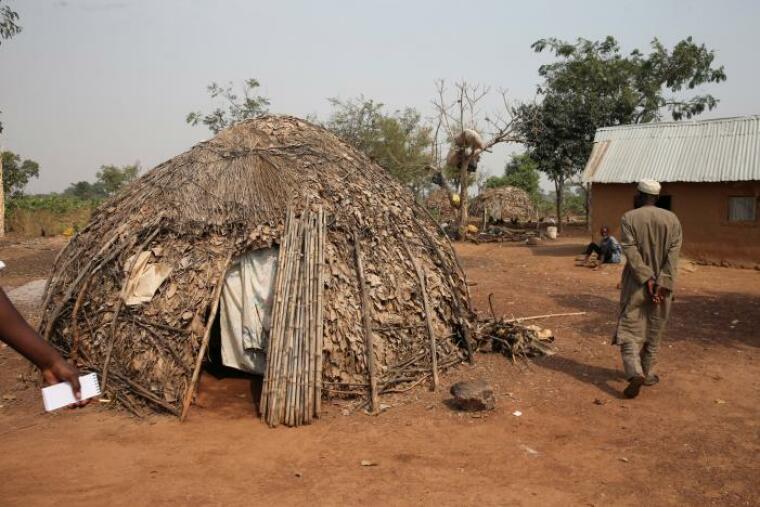Christian leaders in Nigeria cancel day of mourning for believers killed by insurgents

The Christian Association of Nigeria (CAN) has announced the suspension of Christian Day of Mourning, which was supposed to commemorate the believers who died at the hands of religious insurgents.
CAN President Samson Ayokunle said that the event, which was scheduled to take place globally on March 19, was canceled due to "misunderstanding, misinterpretation and subsequent security concerns."
"All Nigerian Christian assemblies are urged to have a normal Sunday Worship on March 19, 2017, but suspend any action on the Day of Mourning," Ayokunle said, according to Vanguard.
"Christians should be careful and watchful. Further communication shall be issued by CAN in due course. In the meantime, we are all urged to remain steadfast and resolute in the Grace of God that Nigeria shall overcome the present distress and peace shall prevail all over the nation," he added.
The National Executive Committee of CAN made the decision to hold the day of mourning on March 19 during a meeting last month. However, security agencies have raised concerns that the event could lead to untoward development.
The agencies also questioned why CAN waited for the return of President Muhammadu Buhari before staging the program. Buhari, who went to London on medical leave on Jan. 19, had just returned to Nigeria on March 10.
Morning Star News reported that security agencies and the Nigerian government had recently threatened Christian leaders for speaking out against the attacks committed by Fulani herdsmen against Christians, as well as the attacks by the Islamic extremist group Boko Haram in northeastern Nigeria.
Earlier this month Ayokunle told the National Executive Committee that the failure of the security agencies to apprehend and charge the assailants has allowed the crisis to continue.
He said that the killings have continued despite the curfews and the presence of police and security agencies in the area. Ayokunle pointed to an incident in which a Redeemed Christian Church of God building was burnt down in Abuja early in the morning.
"What shall we do to these continuous provocations without any visible action by the law enforcement agents?" he said.
On March 6, the advocacy group Jubilee Campaign held a press conference in Geneva, Switzerland where it noted that the rising Fulani militancy had succeeded Boko Haram as the foremost violent threat in Nigeria.
The panelists said at the press conference that 4,000 people have died in the past three years due to the increase in militarization in north and central Nigeria.
 Christians don't have to affirm transgenderism, but they can’t express that view at work: tribunal
Christians don't have to affirm transgenderism, but they can’t express that view at work: tribunal Archaeology discovery: Medieval Christian prayer beads found on Holy Island
Archaeology discovery: Medieval Christian prayer beads found on Holy Island Presbyterian Church in America votes to leave National Association of Evangelicals
Presbyterian Church in America votes to leave National Association of Evangelicals Over 50 killed in 'vile and satanic' attack at Nigerian church on Pentecost Sunday
Over 50 killed in 'vile and satanic' attack at Nigerian church on Pentecost Sunday Ukrainian Orthodox Church severs ties with Moscow over Patriarch Kirill's support for Putin's war
Ukrainian Orthodox Church severs ties with Moscow over Patriarch Kirill's support for Putin's war Islamic State kills 20 Nigerian Christians as revenge for US airstrike
Islamic State kills 20 Nigerian Christians as revenge for US airstrike Man who served 33 years in prison for murder leads inmates to Christ
Man who served 33 years in prison for murder leads inmates to Christ


 Nigerian student beaten to death, body burned over ‘blasphemous’ WhatsApp message
Nigerian student beaten to death, body burned over ‘blasphemous’ WhatsApp message 'A new low': World reacts after Hong Kong arrests 90-year-old Cardinal Joseph Zen
'A new low': World reacts after Hong Kong arrests 90-year-old Cardinal Joseph Zen Iran sentences Christian man to 10 years in prison for hosting house church worship gathering
Iran sentences Christian man to 10 years in prison for hosting house church worship gathering French Guyana: Pastor shot dead, church set on fire after meeting delegation of Evangelicals
French Guyana: Pastor shot dead, church set on fire after meeting delegation of Evangelicals ‘Talking Jesus’ report finds only 6% of UK adults identify as practicing Christians
‘Talking Jesus’ report finds only 6% of UK adults identify as practicing Christians Mission Eurasia ministry center blown up in Ukraine, hundreds of Bibles destroyed: 'God will provide'
Mission Eurasia ministry center blown up in Ukraine, hundreds of Bibles destroyed: 'God will provide' Church holds service for first time after ISIS desecrated it 8 years ago
Church holds service for first time after ISIS desecrated it 8 years ago Burger King apologizes for 'offensive campaign' using Jesus' words at the Last Supper
Burger King apologizes for 'offensive campaign' using Jesus' words at the Last Supper Uganda: Muslims abduct teacher, burn him inside mosque for praying in Christ’s name
Uganda: Muslims abduct teacher, burn him inside mosque for praying in Christ’s name